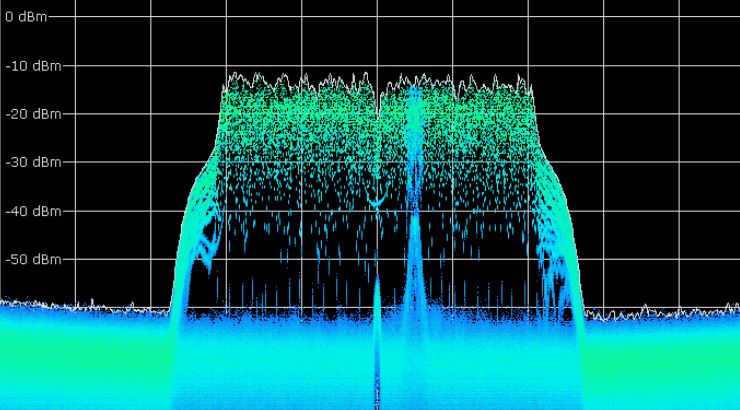(Jake Anderson) As SARS-CoV-2, the novel coronavirus that causes CoViD-19, continues to spread around the world, scientists, medical experts, and healthcare professionals search for ways to diagnose the illness and “flatten the curve” of infection.
Related The Truth About CBD, the Immune System and Coronavirus COVID19
by Jake Anderson, April 2nd, 2020
Since the window of time in which early testing could have helped shape effective quarantine strategies was missed, a team of researchers at Carnegie Mellon University are trying something different: a voice analyzer app that may be able to determine whether or not you’re infected.
While the app is still in an early beta stage, the researchers believe their algorithm could help alleviate the widespread shortage of testing kits. While they are quick to point out that their tool has not been approved by the FDA or the CDC and is not a medical diagnostic system, the COVID Voice Detector may be able to pick up on some of the telltale breathing, coughing, and voice patterns exhibited by infected people.
“In terms of diagnostics, of course, it’s never going to be as accurate as taking a swab and putting it on some agar and waiting for it to grow,” said Benjamin Striner, a Carnegie Mellon graduate student who worked extensively on the app. “But in terms of very easily monitoring a ton of people daily, weekly, whatever, monitoring on a very large scale, it gives you a way to handle and track health outbreaks.”
The app developers say that more data is needed to say how effective the Voice Detector is at diagnosis.
Bhiksha Raj, a professor at Carnegie Mellon who is one of the app’s co-developers, says:
“The score the app currently shows is an indicator of how much the signatures in your voice match those of other COVID patients whose voices we have tested. This is not medical advice. The primary objective of our effort/website at this point of time is to collect large numbers of voice recordings that we could use to refine the algorithm into something we—and the medical community—are confident about.”
The app is part of a long line of experimental algorithms that pinpoint micro-signatures in the human voice. Such micro-signatures, says Rita Singh, a professor of computer science at Carnegie Mellon, can be used to assess preliminary diagnostics about a patient’s psychological, physiological, and other medical info.
“The cough of a COVID patient is very distinctive,” Singh observes. “It affects the lungs so badly that breathing patterns and several other vital parameters are affected, and those are likely to have very strong signatures in voice.”
Watch Free Energy – The Race to Zero Point
Not everyone is convinced this is the best time for such an experiment. Professor Ashwin Vasan remarked:
“Despite what could be a well-intentioned attempt by a bunch of engineers to help during this crisis, this is not exactly the messaging we want to be out there. That somehow there is a nifty new tool we can use to diagnose coronavirus, in absence of the things we really need much more of, actual test kits, serologic testing, PPE for frontline healthcare workers, and ventilators for critically ill patients.”
While the app is not yet being used in any kind of official medical capacity, it is part of a growing suite of data collection and tracking efforts by the healthcare industry, government agencies, and law enforcement.
Just in the last few weeks, we’ve seen a portable artificial intelligence gadget that helps forecast pandemics by analyzing coughing sounds; a Southern California police department in Chula Vista using Chinese drones to help spotlight people breaking social distancing and stay-at-home restrictions; a supercomputer that is running simulations to try and find a CoViD-19 treatment; and, of course, government officials from the CDC and local departments using cellphone meta-data from 500 U.S. cities to surveil peoples’ movements during the pandemic.
If anyone was worried what Big Data during a second Patriot Act-style event would look like, it seems we’re about to get a frontline view.
Stillness in the Storm Editor: Why did we post this?
The news is important to all people because it is where we come to know new things about the world, which leads to the development of more life goals that lead to life wisdom. The news also serves as a social connection tool, as we tend to relate to those who know about and believe the things we do. With the power of an open truth-seeking mind in hand, the individual can grow wise and the collective can prosper.
– Justin
Not sure how to make sense of this? Want to learn how to discern like a pro? Read this essential guide to discernment, analysis of claims, and understanding the truth in a world of deception: 4 Key Steps of Discernment – Advanced Truth-Seeking Tools.
Stillness in the Storm Editor’s note: Did you find a spelling error or grammatical mistake? Send an email to [email protected], with the error and suggested correction, along with the headline and url. Do you think this article needs an update? Or do you just have some feedback? Send us an email at [email protected]. Thank you for reading.
Source:

Leave a Reply